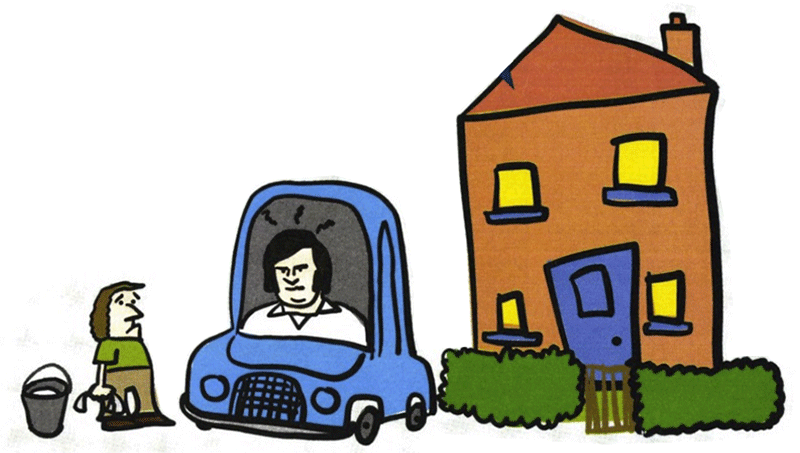
A driveway in Yorkshire will always mean something special to Dave Cohen and his chamois leather, as he explained in WSC 140, October 1998
Whenever I come to Leeds on the train, I still experience a shudder of recognition as we chug past Elland Road, even though the ground now resembles the hundreds of superstore complexes already passed on the way up from London, where I now live. But the most significant footballing address I remember is number 41, The Drive, Leeds 17 – the modest suburban semi that for a few years was the home of Peter “Hot Shot” Lorimer, and a mere ten minutes walk from my teenager abode.
Growing up in north Leeds in the early 1970s, celebrities were thin on the ground. I did bunk off school once to go to the Radio One Road Show, but Dave Lee Travis was hosting and even then, at the height of his success, that was not a name you could drop in double chemistry unless you wanted to be bullied. The only other time I ever got to see anyone famous was once a fortnight at Elland Road.
One way I discovered of paying for my football habit was to go car washing on Sunday mornings. Today, if you entrust your motor to a 14-year-old, you may expect it to be returned as a burnt-out wreck after an all-night session of drag racing and handbrake turns. But car washing was big business back then, when a Fairs Cup ticket could be purchased with the profits from half a dozen sparkling Hillman Imps.
It was during one such motor-soaking Sunday morning that I first discovered my celebrity address. Looking up from a car I was cleaning in the road, I saw in the bay window of 41 The Drive none other than Hot Shot himself, gazing at the begonias on his front lawn, probably while reminiscing over a 40-yard scorcher that nearly tore the goal netting off. It was him alright.
I froze with indecision. Should I wait for him to spot me, staring rudely into his front room, or should I march towards his rather dinky looking sports car and mime a cleaning ritual with my bucket and sponge?
Actually, I felt so humble at the thought of being mere feet away from one of United’s finest, that I finished the job I was doing and ran away as fast as I could.
I thought long and hard about how I could use this new-found knowledge to my advantage. Knowing where someone famous lived could buy me a lot of street cred. In my fantasy I became a great big Somebody – The Boy Who Would Be Peter Lorimer’s Car Washer. I dreamed of saying to the anti-Semites giving me a hard time at school: “I dare you all to call me names in front of Peter Lorimer. He’s Scottish, he understands what it’s like to be a member of a white minority. He’s my mate. I wash his car.”
But it was not to be. As the weeks passed, I concentrated all my car-washing efforts around The Drive, never once plucking up the courage to ring on the doorbell of number 41. The time was never quite right. Maybe I would be too nervous. Maybe United lost the day before and I wouldn’t want to see him brooding over the missed opportunities. Maybe, deep down, I realised that I would have to deal with my racist classmates without his help.
After weeks of obsessive prevarication, I walked out one Sunday morning determined to cross the rubicon, to leap over the threshold from my dull reality into the glamorous world where Peter’s Triumph resided and anything might be possible. I imagined turning on the cold water tap in his kitchen while chatting breezily about the previous day’s game. I arrived at his house and started to walk towards his front door. Within seconds the man I had adored from afar – Hot Shot Lorimer, Superman, freedom fighter, racist basher and all-round hero – had waved me away as dismissively as Ray Tinkler during a Leeds-West Brom match.
All my illusions were shattered in that moment when, for the first time in my eyes, he became an ordinary human. But the next Saturday he ran out on the pitch in his all-white shirt and became a God again.
I realised that was how I wanted my footballers to be – untouchable heroes whose cars were washed by angels in another galaxy.
The racist kids got bored and moved on to something else, there were plenty of other cars to wash and I never did find out the great man’s views on the multicultural society. Although, bizarrely, he ended up becoming a football manager in Israel for a short while, making him a dead cool anti-racist or a rampant Zionist, depending on your point of view. Dave Cohen
This article first appeared in WSC 140, October 1998. Subscribers get free access to the complete WSC digital archive – you can find out more details here
Illustration by Tim Bradford